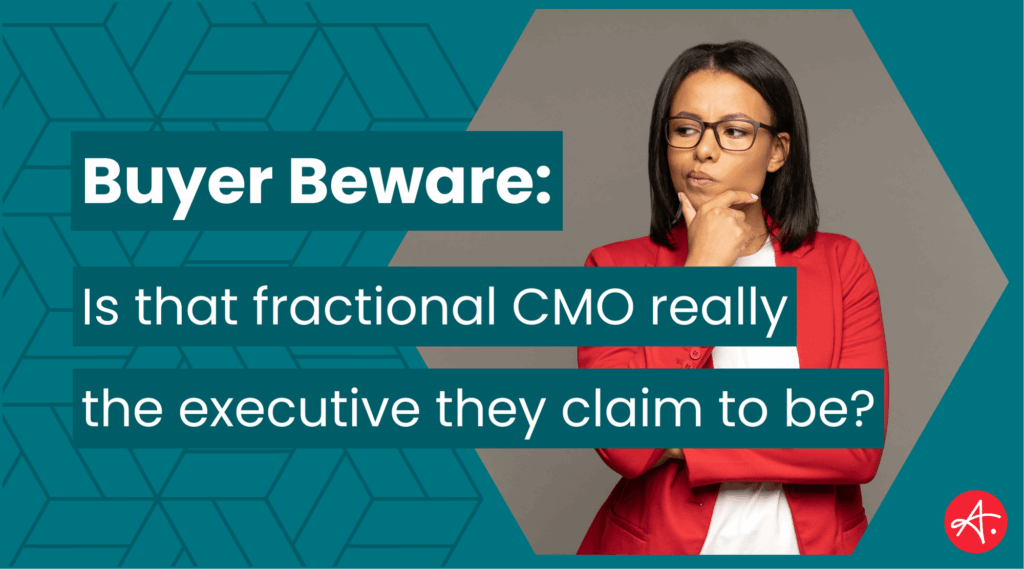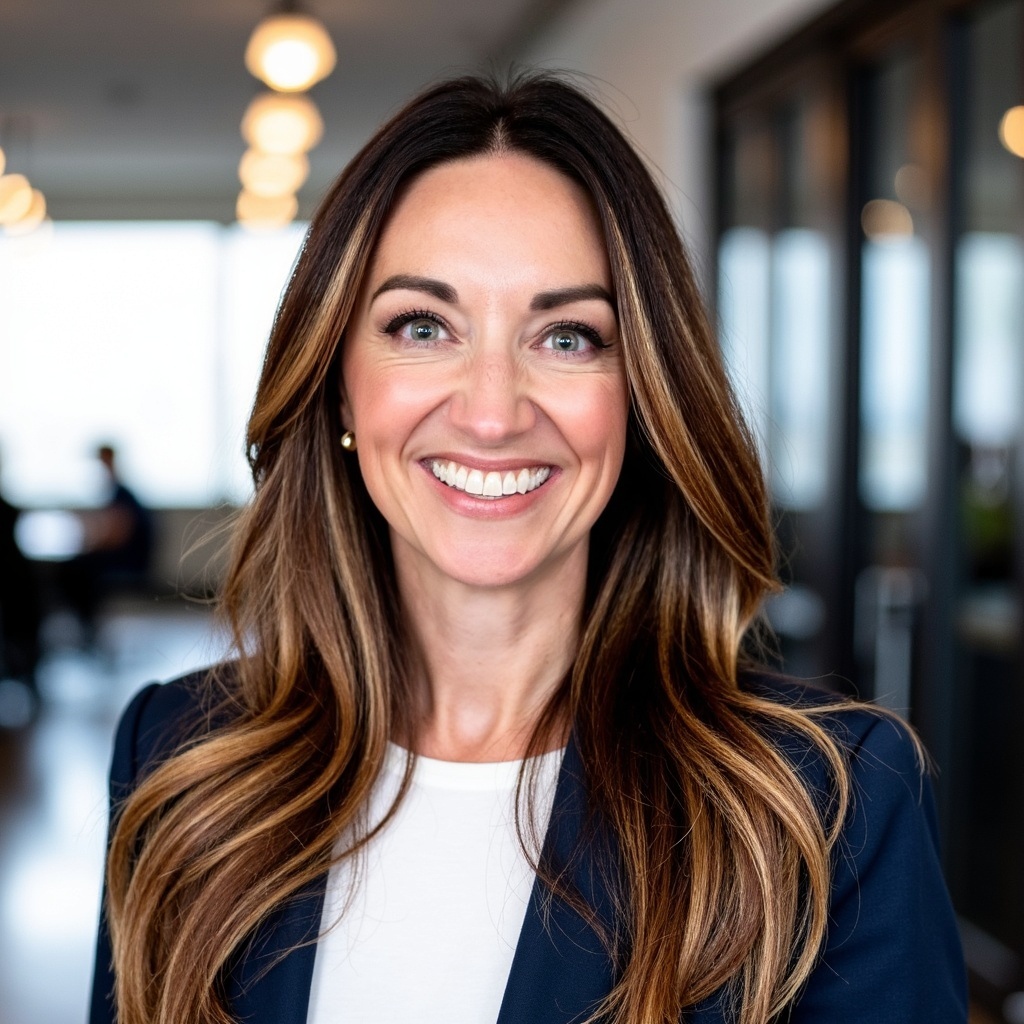Buyer Beware: Is that fractional CMO really the executive they claim to be?

The fractional CMO Wild West
The number of professionals who call themselves fractional CMOs has skyrocketed over the past few years. At Authentic, we see this rapid influx as a double-edged sword.
On the one hand, it validates what we hoped would be true when our founder, Jennifer Zick, started the company in 2017: Small businesses can benefit tremendously from having access to experienced marketing leadership on a part-time, flexible basis. Broad adoption of the term “fractional CMO” indicates there is a market and need for these services.
However, on the other hand, the fractional CMO space has become the Wild West. Everywhere we turn, professionals are coining themselves “fractional CMOs” without actual executive experience to back it up. This includes designers, SEO specialists, and agency marketers who have never been part of a leadership team responsible for profit and loss and building cross-functional executive relationships. Some marketers are even paying for costly certification courses from organizations with no business deeming whether someone is a fractional leader because the companies themselves lack executive marketing experience.
While these marketers may be talented and capable within their slice of the marketing pie, they often do not have the qualifications to call themselves fractional CMOs. And a pseudo certification course isn’t what changes that.
This trend troubles us because it risks undermining a fractional CMO’s strategic impact and the market we have helped shape. Even worse, it misleads the people whom Authentic has set out to help: small business owners and founders who recognize they need to invest in strategic marketing to reach their next level of growth. Investing in a “fractional CMO” who does not have the skills to support a business holistically can lead to stalled growth and wasted resources — and could even hurt a brand’s reputation.
Over the next few months, we’ll share information about how to make sense of the fractional CMO landscape to determine who qualifies as a fractional CMO. But first, it’s important to understand how we got into this conundrum and why this problem is unique to marketing.
Why are there so many fractional CMOs?
Authentic didn’t start as a fractional CMO firm. In fact, Jennifer, our founder, didn’t discover the concept of fractional leadership until several months into the business’s founding when she met fractional CFOs.
After learning about the fractional CFO model, Jennifer thought the concept applied well to her vision for Authentic: to help small businesses Overcome Random Acts of Marketing® with the guidance and wisdom of a truly experienced senior marketing leader on a part-time basis.
Upon discovering the fractional model, Jennifer also learned there were a couple of other players already in the fractional CMO space, a great reassurance that there was a budding market for part-time marketing leadership. Over the next several years, Authentic played a significant role in defining the fractional CMO category — clarifying what it was, communicating its value, and vetting experienced marketing leaders to carefully curate a team of proven executives.
While we were busy educating business leaders about fractional marketing leadership, the U.S. was experiencing a surge in people pursuing entrepreneurship. In fact, according to data from the U.S. Census Bureau, people started 5.5 million new businesses in 2023, the most started in a single year on record. This surge also represents a 56.7% increase from the number of new companies started in 2019.
Behind these numbers is the reality that many of these new businesses are solopreneurs who chose to leave corporate employment for one reason or another — for example, in favor of gaining more personal control over unpredictable layoff cycles, better work-life balance, or as a result of an increase in opportunities for talented people on a contract basis.
Many marketers who joined this rush to entrepreneurship used the fractional CMO term as a shortcut to communicating what they want to provide for clients. And understandably so. Communicating your unique value is challenging. Piggybacking off a market gaining quick traction may feel like the right move.
But how many of these marketers have the background to merit the fractional CMO title? And why is it so difficult to validate expertise in marketing compared to, say, finance?
In short, marketing has a low barrier to entry and few universally accepted standards for qualifying a candidate.
The underlying problem with validating marketing qualifications
Most businesses wouldn’t hire a CFO who didn’t have the credentials, formal education and training, and business experience to prove they are executive-level talent. But in marketing, validating someone’s experience is not as clear-cut.
Nobody has defined what attributes, certifications, or experiences indicate an individual has the aptitude to succeed in an executive-level marketing role. This is primarily due to how radically marketing has changed over the past two to three decades.
Traditionally, the most important skills of a marketing leader were general communications, creativity, branding, and agency relationship management. But today, digital capabilities, emerging technologies, complex multi-channel environments, data overwhelm, and extreme shifts in buyer behaviors and expectations have reshaped the function. The laundry list of skill sets that make up the marketing ecosystem only continues to grow.
As a result of this rapid change and just how broad marketing is, the barrier to entry — and to touting oneself as a fractional CMO — is low. And pinpointing which skill sets matter most for a specific role is challenging if you don’t already have a marketing executive on staff to guide you.
A recommitment to true executive talent
Much has changed since Authentic first started. The fractional CMO ecosystem has shifted from one with a couple of pioneers in the space ensuring the legitimacy of the talent to one where anybody can call themselves a fractional CMO. Given a lack of clear credentialing in marketing, businesses often don’t know how to look at a marketer’s background and justify the quality of the fit in terms of holistic marketing leadership.
The good news is there are still organizations, including Authentic, that are committed to genuine quality and have a high bar for talent qualification, credentialing, and delivery of services.
Authentic’s aim has never been to be the largest fractional CMO firm in the world. But we have always been — and will continue to be — committed to being the premier offer for businesses serious about bringing in qualified senior marketing leadership. Our fractional CMOs are proven, holistic marketing executives who know how to work at the ground level and are:
- Passionate about building, mentoring, and managing teams,
- Capable of layering in the right capabilities at the right time, and
- Experienced at stitching everything together from business strategy down to execution in a way that builds sustainable strategic growth and value in the business.
Authentic played a leading role in defining and shaping the fractional CMO category. Now, we see it as our responsibility to set the record straight — to help founders and business owners make sense of the noisy space to find executives who can lead, manage, and drive accountability in their businesses.

